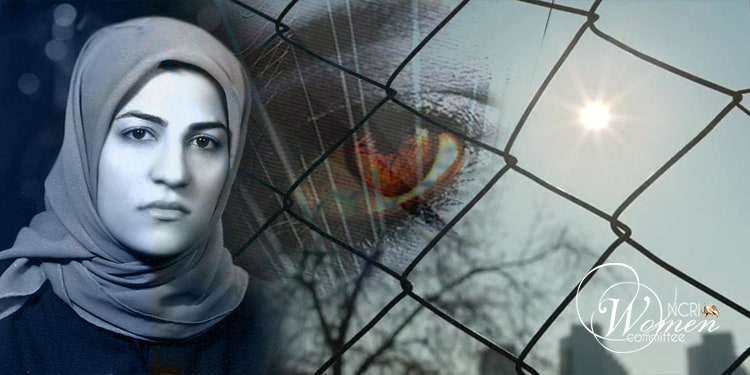From the memoir by Hengameh Haj Hassan – Part 10
⚠️ Content Warning: This section contains descriptions of torture, violence, and executions in prison.
In the previous part of Face to Face with the Beast, Hengameh wrote about the nightly “quota of lashes” endured by prisoners like Mina Izadi and Zahra Shabzendehdar, who resisted with remarkable courage despite unrelenting torture.
In this installment, she recalls the arrival of a new prisoner, Nahid Izadkhah, whose shattered body, unbroken spirit, and final dream left an unforgettable mark on those who witnessed her last days.
The Strange Dream of Nahid Izadkhah
One night there was unusual commotion under the guard post. We realized they were bringing in a new prisoner. All of us were curious to see who she was. Two of the girls carried her in, because she could not walk. Those who were sitting or lying in the hallway pulled back to let them pass.
They brought her into our room and gave her a place in the corner, away from the crowded path of footsteps, so her legs—each swollen and bloody like a giant pillow—would not be stepped on. Her legs were covered with hematomas up to the thighs, bruised and swollen. The soles of her feet were grotesquely deformed by deep wounds. She was small and thin, with a dusky complexion and large, beautiful brown eyes in which an extraordinary innocence shone.
She thanked everyone softly. Groups of girls came to welcome her, ask about her condition, and talk with her. Her name was Nahid Izadkhah.
Later, as we got to know her better, she told me she was the sister of Masoud Izadkhah, the husband of Masoumeh Azdanlou. Her brother Masoud had been killed resisting the Revolutionary Guards, and Masoumeh—who was pregnant—had been captured, wounded in the face and jaw. They were all taken to Section 209 of Evin Prison and tortured.
Nahid’s legs had been destroyed under cable lashes. They had to take her to the infirmary and operate several times. To replace the skin and flesh that had been stripped away, they grafted patches from other parts of her body—something rarely done for prisoners marked for execution. This gave us a small hope that perhaps Nahid would not be executed.
She told me the most painful moment had been when the guards dragged her to where Masoumeh lay. Masoumeh was alone, half-conscious, her jaw shattered, collapsed on the cell floor without any medical care. The stench of blood and infection filled the room. One of the interrogators viciously kicked Masoumeh in the broken jaw, and she could only manage a faint moan. She could not even move. As Nahid recounted this, tears ran down her face, and she shook her head. We all wept with her. Eventually, Masoumeh the brave was executed in that state, along with her unborn child.
Nahid’s own legs had been left in a strange condition. Even a month later, the skin on her thighs would peel off like a stocking. For a long time, she could not walk, and the girls helped her with everything.
Then one morning she rose with unusual joy. She said: “I want to go to the bath.” We were surprised—there was no hot water, only ice-cold water. But she insisted: “I must go. I want to perform the ablution for martyrdom. Last night I dreamed my mother placed my hand in Masoud’s hand and entrusted me to him. Today I will join him.”
We didn’t know what to say. It was just a dream. But Nahid spoke with absolute certainty. She bathed in the cold water, returned, prayed, divided her few belongings among the girls, dressed in her best clothes, and waited.
Suddenly, in disbelief, we heard her name called—together with that of another prisoner, Shokouh Mazinani, who was only a high-school student. Nahid leapt up joyfully: “You see, I told you! Today I am going to Masoud!” And she left.
That very day, she was executed by firing squad.
Footnotes
- Section 209 (Evin Prison) – A notorious ward in Tehran’s Evin Prison run by the Ministry of Intelligence, used for political prisoners.
- Cable lashes – A common torture method in Iranian prisons, where prisoners were whipped on the soles of their feet with heavy cables.
- Ablution for martyrdom (ghusl-e shahadat) – A ritual washing in Islam, performed in preparation for death in the path of faith.
- 1981 executions – In the early 1980s, thousands of political prisoners, including many young women, were executed by the regime.
